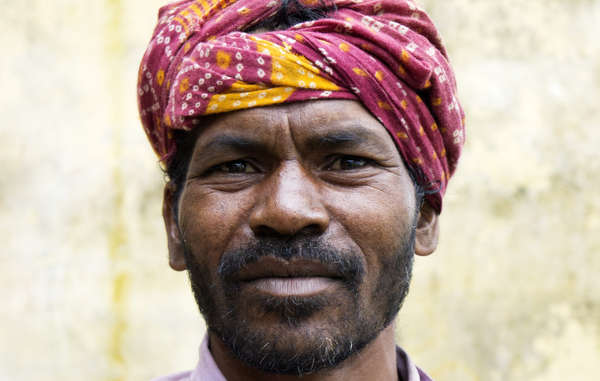Featured image: Many Baiga have already been evicted from their forest homes, and now face lives of poverty in resettlement camps © Survival International
Several tribal villages in central India face annihilation as they are being forced to leave their ancestral land in Achanakmar tiger reserve, close to the area which inspired Rudyard Kipling’s Jungle Book.
The Baiga tribespeople have been repeatedly harassed and told that they will have to move from their villages to a muddy clearing outside the reserve, even though there is no evidence their presence in the reserve is harming tigers. Such evidence is required if the tribe’s eviction is to be lawful, but in fact the number of tigers in the reserve reportedly rose from 12 to 28 between 2011 and 2015.
One Baiga man from Rajak village said: “We don’t want to go, we can’t go. What should we do?”
A local witness told Survival: “There is nothing around the new site for them, nothing will grow in the land, there is no water and they won’t be able to take anything from the forest. That’s why they are so adamant that they won’t leave, because if they go they will just die out.”
Some have been told that if they don’t leave their ancestral land, guards will release bears and snakes into their villages. Others have been arrested and harassed – in 2009 one man was jailed for three months for eating a squirrel he had found dead on the forest floor.
Those who have already been evicted from Achanakmar now live in inadequate government camps and face lives of poverty on the fringes of mainstream Indian society.
One Baiga person from Chirahatta village, which is facing eviction, said: “They’ve been placing restrictions on us for two or three years. They don’t let us live. They take us to jail and threaten us. They are harsh and strict. They put us in jail for nothing. If we say anything they threaten to put us in jail. They are making it difficult for us to live.”
Elsewhere, Baiga people do back-breaking manual labour in bauxite mines in terrible working conditions.
Across India, tribespeople are being illegally evicted from tiger reserves, despite there being no evidence that their presence harms tigers. They face arrest and, in some places, beatings, torture and even summary execution for trying to re-enter their ancestral land, while large-scale tiger-spotting tourism is encouraged.
Last year, Survival learned that tiger numbers had increased at well above the Indian national average in BRT, the one reserve in India where tribes have been formally allowed to stay on their land, demonstrating that tribal villages within wildlife reserves do not pose a substantial threat to tigers or their habitat.
Survival has written to WWF, the world’s largest conservation organization, which equips and trains the forest guards in the region.
Evidence proves that tribal peoples are better at looking after their environment than anyone else. Despite this, they are being illegally evicted from their ancestral homelands in the name of conservation. The big conservation organizations are guilty of supporting this. They never speak out against evictions.
Survival’s director Stephen Corry said: “It’s illegal and immoral to target tribes, who have coexisted with the tiger for centuries, when industrialization and mass-scale colonial-era hunting are the real reason the tiger became endangered. It’s also ineffective, because targeting tribespeople diverts action away from tackling the true poachers – criminal gangs. Big conservation organisations should be partnering with tribal peoples, not propping up the Forest Departments that are guilty of brutalizing them. Targeting tribal people harms conservation.”



I just watched a documentary,which had solid research there are about 5 thousand captive tigers “owned”by 1% predators like punk ass Justin beeber.Left in the so called wild is about 2,500.Who are these narcissistic Pos?it when on explain how easy it is for this type of amoeba brain to buy the license necessary to jail creatures much more magnificent than these sick mutant humans.